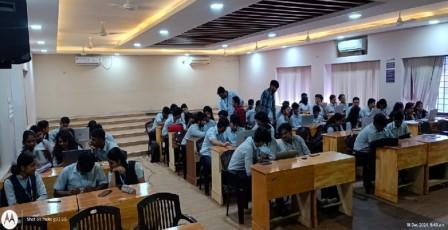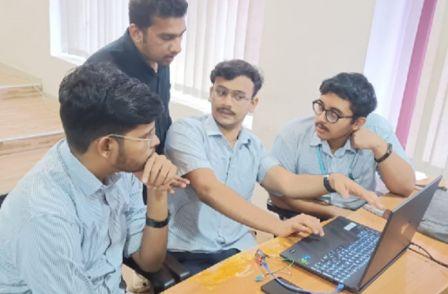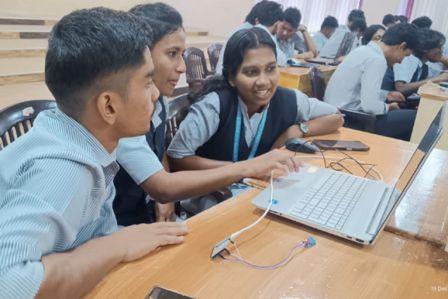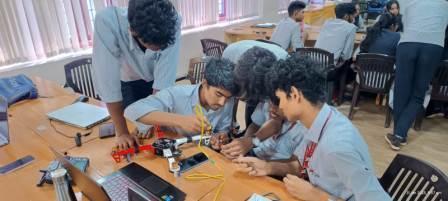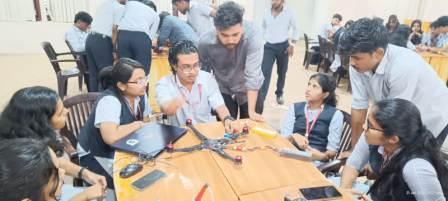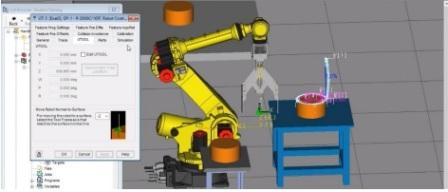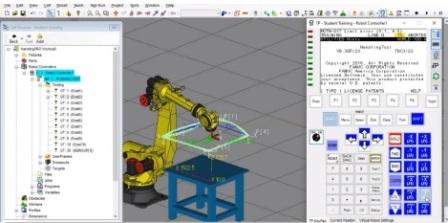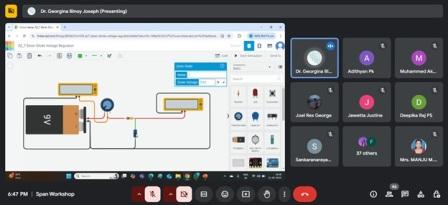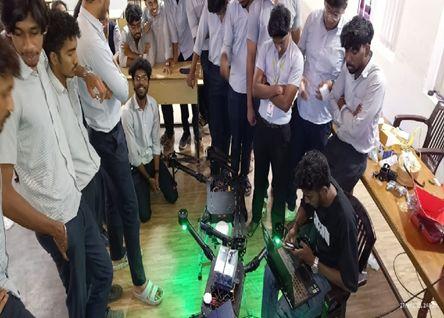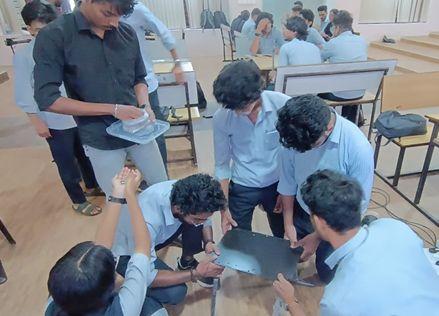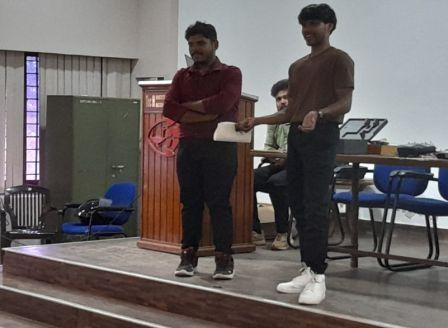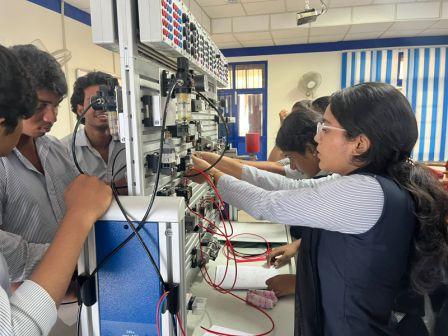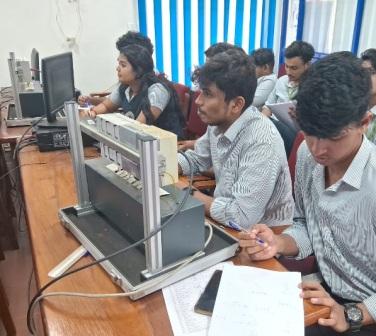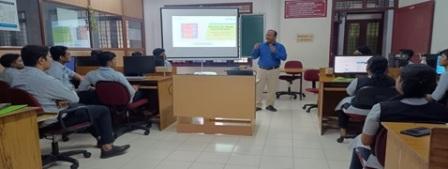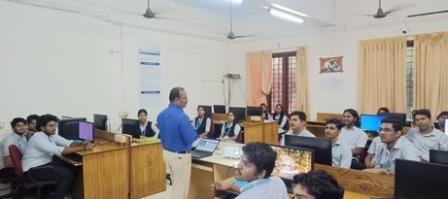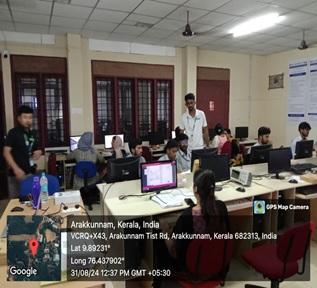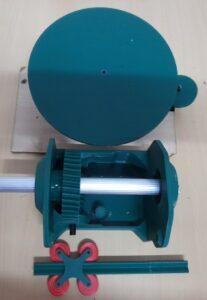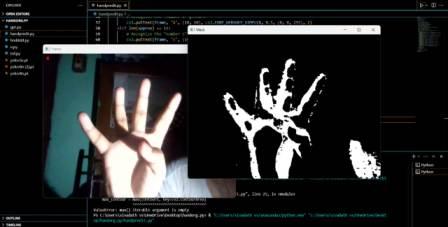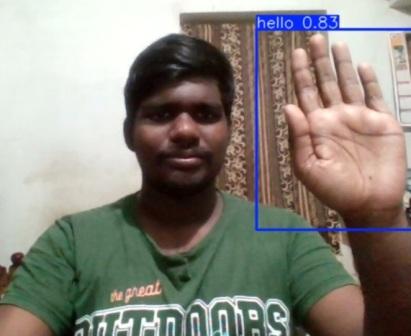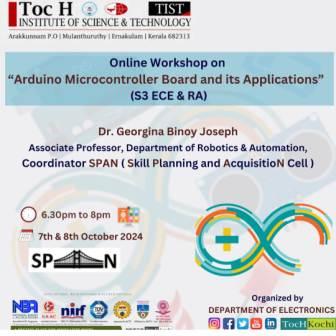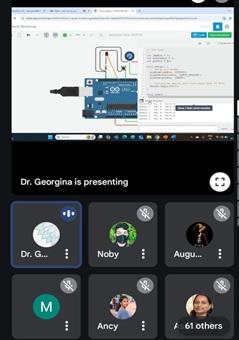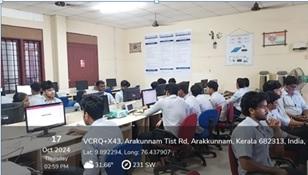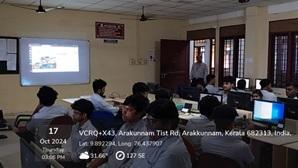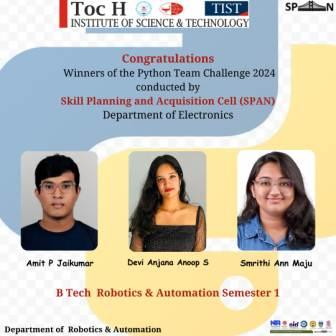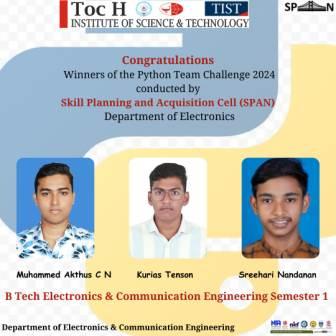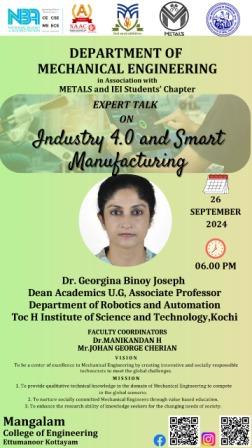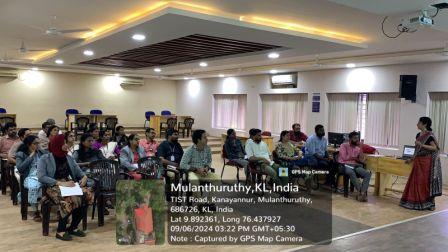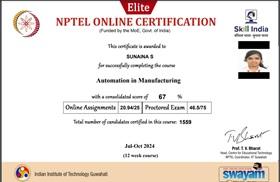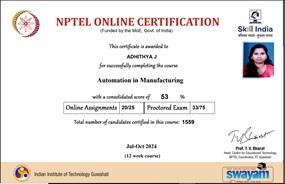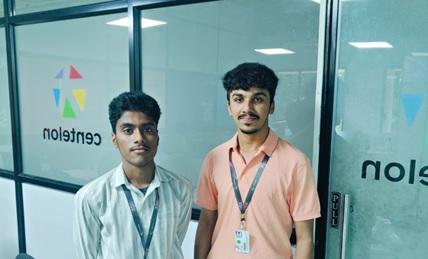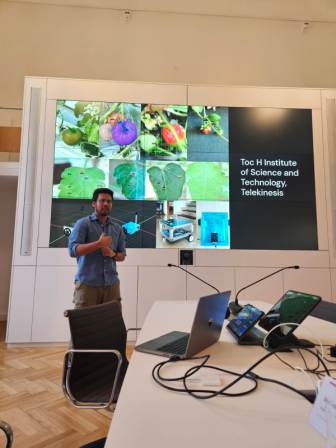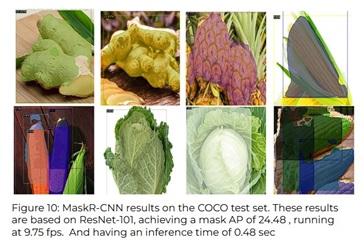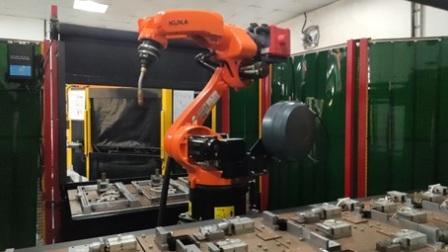SPAN – Skill Planning and AcquisitioN Cell 
The Department of Electronics and Communication Engineering has always recognized the need for upgrading the skills of students and faculty to keep up with the rapidly changing requirements of the technology industry. Various workshops have been conducted by the department keeping these technological requirements in mind. In order to bridge the gap between industry and academics, the ECE department is launching SPAN – Skill Planning and AcquisitioN Cellthat will identify and plan skill development programs according to current industrial requirements.
The objectives of this cell are to:
(i) improve employability of students by exposingthem to relevant industry standard platforms
(ii) foster in students and staff the ability to design and implement projects catering to the needs of society
(iii) facilitate students and staff to keep up with rapidly changing technologies
(iv) make learning effective and enjoyable
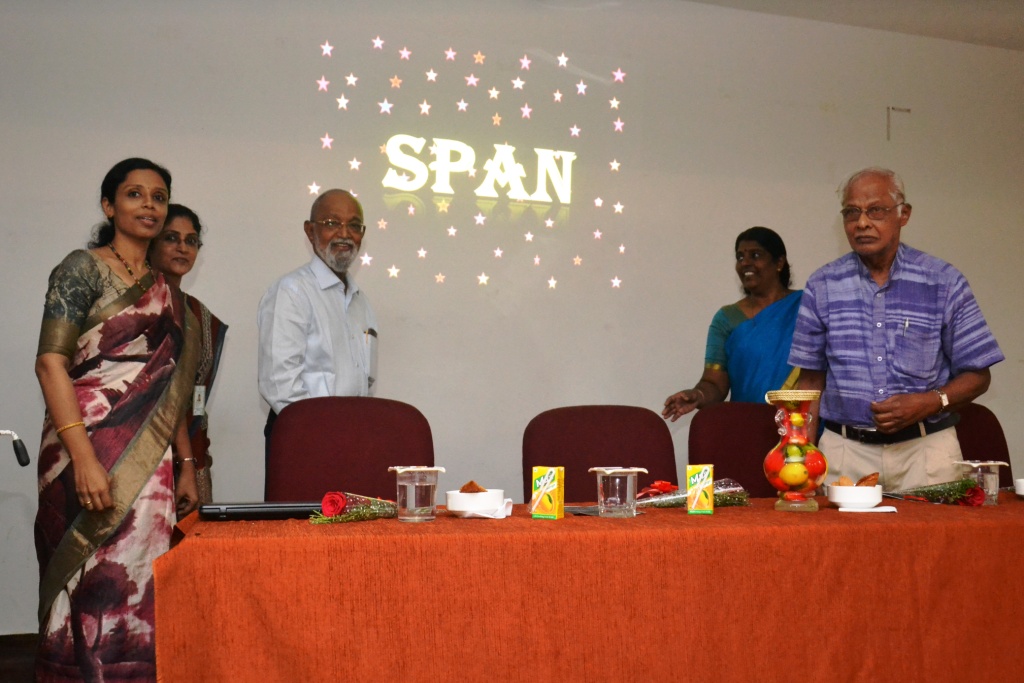
SPAN takes great pride in announcing that AICTE has acknowledged our efforts and funded our activities for the year 2021-22 under the AICTE Scheme for Promoting Interests, Creativity, and Ethics among Students (SPICES). We are very grateful to AICTE-SPICES and the Management of TIST for their support.
SPAN ACTIVITIES – EVEN SEMESTER (2024-2025)
|
S.No |
DATE |
PROGRAM |
BATCH |
NUMBER OF STUDENTS |
|---|---|---|---|---|
|
1 |
18.12.2024 to 19.12.2024 | Workshop on Embedded Systems and IoT – Srishti Robotics | S4 ECE |
20 |
| S4 RA |
33 |
|||
|
2
|
30.1.2025 to 1.2.2025 | Workshop on Drone Technology – DC Robotics | S2ECE |
2 |
| S2 RA |
39 |
|||
|
3 |
2.1.2025 to 4.1.2025 | Robot operations and programming –Fanuc India Pvt. Ltd. | S6 RA |
26 |
|
4
|
10.2.2025 to 11.2.2025 | Electronics made EZ – Analog Electronics Workshop – SPAN | S2 ECE |
26 |
| S2 RA |
20 |
|||
|
5 |
24.2.2025, 25.2.2025, 27.2.2025 | Workshop on UAV Technology – Fuselage Innovation Pvt. Ltd. | S6 ECE |
10 |
| S6 RA |
19 |
WORKSHOP ON EMBEDDED SYSTEMS AND IoT BY SRISHTI ROBOTICS
A two-day workshop on Embedded IoT, organized by the Skill Planning and Acquisition Cell (SPAN), was conducted by Srishti Robotics at Toc H Institute of Science and Technology (TIST) on 18th and 19th December 2024 for students of S4 Electronics and Communication Engineering and S4 Robotics and Automation. The program covered a spectrum of sensors and hands-on experiments with MCUs made complex concepts easier.The workshop provided hands on training in IoTand its applications.Blynk and Thingspeak, the IoT platforms covered in the program, were presented in depth. The integration of ESP32 with Blynk for remote control and monitoring opened up a world of possibilities. Real-time data visualization became not just a concept but a skill student could confidently apply to future projects.The hands-on approach was a key factor in making the learning experience engaging and impactful.The program equipped students to embark on their own embedded systems and IoT projects in the Project Based Learning Activity (PBL)conducted by SPAN this semester.
WORKSHOP ON DRONE TECHNOLOGY – DC ROBOTICS
A three-day hands-on workshop on Drones was conducted from January 30 to February 1, 2025, led by Anfil Shajo, an alumnus of the 2020 Robotics and Automation batch and his team from DC Robotics. The workshop provided participants with in-depth knowledge of drone technology, including assembly, programming and real-world applications.Students fromS2 Electronics and Communication Engineering (ECE) and S2 Robotics and Automation (RA)actively participated, gaining valuable hands-on experience in UAV technology and operations.
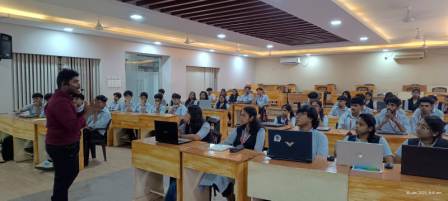
ROBOT OPERATIONS AND PROGRAMMING – FANUC INDIA PVT. LTD.
This program was conducted in association with FANUC India Pvt. Ltd. Students of S6 BTech Robotics and Automation participated in the program to develop their skills in robot programming and to develop real industrial robotics application using FANUC’s development tool ‘ROBOGUIDE’ The topics covered were: • Robot selection and application • Robot controllers and mechanical parts • Safety standards on robots • Different operating modes, Coordinate systems, jogging of robot • Creation, selection of program, motion instructions, control instructions • Loading and unloading application for a machine tool • Application development and simulation using ROBOGUIDE software
ELECTRONICS MADE EZ – ANALOG ELECTRONICS WORKSHOP
Recognizing the importance of analog electronics, the workshop for S2 Electronics and Communication Engineering and S2 Robotics and Automationwas designed to enable a thorough base in the fundamentals of analog electronics through learning by application and exploration. This workshop showed participants how easy and enjoyable it is to assemble and test electronic circuits. Participants used resistors, capacitors, diodes, LEDs, BJTs, opamps and Timer ICs to build useful and fun projects with the underlying objective of learning fundamental concepts of the components, use of datasheets and design concepts. Tinkercad provided a useful platform for students to actually implement and test their circuits. The workshop also helped students prepare for their projects in the Project Based Learning Activity (PBL) conducted by SPAN this semester.
WORKSHOP ON UAV TECHNOLOGY
Fuselage Innovations Pvt. Ltd, conducted a 3-day workshop on UAV technologies for the students of S6 Electronics and Communication Engineering and S6 Robotics and Automation on 24th, 25th and 27th February 2025. The session provided valuable insights into UAV advancements, applications, and industry trends, along with practical exposure to UAV systems. Students actively participated in the workshop which included UAV design, UAV building, functionality and real-world applications. PrithviUllas, a 2023 Robotics and Automation alumnus and Junior UAV Engineer at Fuselage Innovations was a part of the team that conducted the workshop.
ALUMNI INTERACTION ON 30 JANUARY 2025
Alumni interaction with S2 students – Akshay Kannan (SFO Technologies) spoke about his experiences in project competitions, internships and his work as an Automation Engineer in SFO including the development and deployment of a Robotic Welding Cell.AnfilShajo (DC Robotics) emphasized the importance of hands on experience, participating in external events and the opportunities that are available to skilled engineers. Both are our alumni from 2020 – 2024 batch of Robotics and Automation.
PROJECT BASED LEARNING PBL
|
S. NO. |
DATE |
PROGRAM |
BATCH |
NUMBER OF STUDENTS |
|---|---|---|---|---|
|
1 |
25.1.2024 to 23.2.2024 |
Electronic Circuits Projects |
S2 ECE |
64 |
|
S2 RA |
57 |
|||
|
2 |
3.2.2024 to 22.3.2024 |
IoT and Embedded Systems Projects |
S4 ECE |
50 |
|
S4 RA |
53 |
SPAN uses Project Based Learning (PBL) as a tool to enhance the skills and confidence level of students. Through the successful implementation of these projects,students will be able to think creatively, apply concepts learnt in theory, debug problems faced, use manufacturer’s data sheets,implement products, and evaluate choices in materials, methods and components.Projects were designed based on specific skills emphasized by industry through our Industry Institute collaborations and MoUs.
Electronic Circuits Projects
Students of the second semester of BTech Electronics and Communication Engineering and BTech Robotics and Automation implemented projects in Electronic Circuits. Circuits were required to be soldered onto general purpose PCBs or specially designed PCBs. In addition, the circuits had to be implemented using discrete analog and/or digital components and ICs without the use of Microcontrollers so that skills in handling and understanding these electronic devices could be enhanced.Projects were implemented in areas of Office, Home and Factory Automation, Vehicle Automation, Automated Security Systems, Fire Safety Systems, Agricultural Automation, Smart Cities and Smart Transport.
IoT and Embedded Systems Projects
Students of the fourth semester of BTech Electronics and Communication Engineering and BTech Robotics and Automation implemented projects inIoT and Embedded Systems. The projects focused on the development of Embedded Systems with IoT capability and Mobile App development for application areas in Smart Homes, Smart Factories and Machines, Smart Warehouses, Smart Agriculture, Smart Cities, Smart Transportation and Traffic Management, Smart Inventory Management, Smart Parking and Security Systems.
SPAN ACTIVITIES – ODD SEMESTER (2024-2025)
|
S.No |
DATE |
PROGRAM |
BATCH |
NUMBER OF STUDENTS |
|---|---|---|---|---|
|
1 |
22.7.2024 to 27.7.2024 |
Training and Internship at Bosch Rexroth-GPTCK Centre Of Competence In Automation Technologies |
S5 RA |
48 |
|
2 |
22.7.2024 to 26.7.2024 |
Industrial Training on Digital Design and Verification using Cadence Tool by ENTUPLE TECHNOLOGIES |
S3 ECE |
25 |
|
3 |
29.8.2024 to 31.8.2024 |
Training on EDGE AI using STM Microcontrollers by Digitoad Technologies |
S7 RA |
8 |
|
4 |
August to October 2024 |
CAD and 3D Printing Projects under the SPAN Project Based Learning (PBL) program |
S3 RA |
52 |
|
5 |
September 2024 |
AI-based Vision Systems projects under the SPAN Project Based Learning (PBL) program |
S5 ECE |
31 |
|
S5 RA |
49 |
|||
|
6 |
7.10.2024 to 8.10.2024 |
Arduino Microcontroller Board and Its Applications |
S3 ECE |
17 |
|
S3 RA |
40 |
|||
|
7 |
18.10.2024 |
Webinar on Advancements in Additive Manufacturing – Wipro3D, Nikon SLM |
S3 RA |
25 |
|
8 |
November – December 2024 |
Python Project Based Learning under the SPAN Project Based Learning (PBL) program |
S1 ECE |
65 |
|
S1 RA |
57 |
|||
|
9 |
16.12.2024 |
Python Team Challenge 2024 |
S1 ECE |
65 |
|
S1 RA |
57 |
TRAINING AND INTERNSHIP AT BOSCH REXROTH-GPTCK CENTRE OF COMPETENCE IN AUTOMATION TECHNOLOGIES
Bosch Rexroth’s GPTCK Center provided training for fifth-semester B Tech Robotics and Automation students, covering electro hydraulics and pneumatics, PLC fundamentals, software and Bosch PLCs with applications in lighting and motor control. The course included concepts in industrial automation and hands-on experiments with various sensors, as well as implementing lift logic on Bosch PLCs. Students gained practical experience in hydraulics and pneumatics, including cylinder control, and integrated these systems in a mini assembly line model with conveyor belts and mechanization
INDUSTRIAL TRAINING ON DIGITAL DESIGN AND VERIFICATION USING CADENCE TOOL BY ENTUPLE TECHNOLOGIES
Third-semester B Tech ECE students successfully completed the Industrial Training on Digital Design and Verification using Cadence Tool conducted by ENTUPLE TECHNOLOGIES. This session marked the start of an ongoing journey in turning ideas into practical systems, offering hands-on experience with ASIC and FPGA flows, Verilog constructs, combinational and sequential circuit design, protocol state machine modeling, and test bench creation, thus advancing their skills in SoC and IC design with Cadence Tool.
TRAINING ON EDGE AI USING STM MICROCONTROLLERS BY DIGITOAD TECHNOLOGIES
A workshop on Edge AI by DigiToad Technologies (Empowering Engineering Education for the AI Driven Futurewas conducted from August 29th to August 31st, 2024.Students of S8 B Tech Robotics and Automation attended this workshop. NanoEdge AI Studio, developed by STMicroelectronics, is a powerful tool that enables developers to integrate machine learning models onto microcontrollers, specifically for edge computing applications. When used with the Nucleo-L476RG microcontroller, Nano Edge AI Studio is ideal for tasks such as anomaly detection, classification, and regression analysis using data from connected sensors. These applications were implemented in the hands on workshop.
CAD AND 3D PRINTING PROJECTS UNDER THE SPAN PROJECT BASED LEARNING (PBL) PROGRAM
The students of S3 Robotics and Automationdesigned and implemented projects in CAD and 3D Printing. Projects focused on design, CAD Modeling and 3D printing of claw and parallel grippers, gear boxes, linear actuators and guide rails, robotic manipulator parts, fixtures, mobile robot chassis, indexing tables and drone propellers and ducts.
AI-BASED VISION SYSTEMS PROJECTS UNDER THE SPAN PROJECT BASED LEARNING (PBL) PROGRAM
The students of S5 ECE and S5 Robotics and Automation successfully completed and demonstrated various AI-based Vision Systems projects under the Project Based Learning (PBL) Program conducted by SPAN in September 2024. The projects showcased innovative solutions for AI-based security and access control, intelligent traffic management, plant disease detection, hand gesture recognition, automated part recognition and many more. Through this program, students gained hands-on experience in designing, developing, and deploying AI-driven vision systems, demonstrating their skills in problem-solving, critical thinking, and collaboration. The projects not only illustrated the transformative potential of AI in various industries but also underscored the students’ preparedness to address real-world challenges.
ARDUINO MICROCONTROLLER BOARD AND ITS APPLICATIONS
A two-day online workshop on “Arduino Microcontroller Board and Its Applications”, organized under SPAN for S3 ECE and Robotics and Automation students, was conducted by Dr. Georgina Binoy Joseph. The workshop provided an engaging introduction to Arduino, covering its architecture, programming environment, and various applications. Participants learned to set up the Arduino IDE, write basic programs, and connect sensors through hands-on activities. The second day focused on practical projects, including motor speed and direction control, emphasizing real-world applications in automation. Overall, the workshop successfully enhanced students’ understanding of microcontroller technologies and inspired hands-on learning.
WEBINAR ON ADVANCEMENTS IN ADDITIVE MANUFACTURING
The Skill Planning and Acquisition Cell SPAN arranged a webinar titled “Advancements in Additive Manufacturing: Government Initiatives and Emerging Opportunities in India” on October 18, 2024. This event was part of the 3D Thursday Webinar Series, organized in collaboration with Wipro and in partnership with Nikon SLM. Attended by S3 Robotics and Automation students, the session covered the latest trends in additive manufacturing, examined government initiatives that support the industry, and discussed emerging opportunities in India. Participants gained valuable insights into the future of manufacturing and the skills necessary to succeed in this rapidly evolving field.
PYTHON PROJECT BASED LEARNING UNDER THE SPAN PROJECT BASED LEARNING (PBL) PROGRAM
Recognizing that programming skills are essential to excel in any field, SPAN has taken the initiative to guide students to enhance their programming skills through self-learning. The students of S1 ECE and S1 Robotics and Automation successfully completed individual projects in python programming. The students were given projects covering key areas of python programming. The completed projects were shared in a common group forming a repository that can be used by students in their preparation for technical tests for placements.
PYTHON TEAM CHALLENGE 2024
A Python Team Challenge was conducted for students of S1 ECE and S1 Robotics and Automation. Students were given real world problems whose solutions were based on algorithms that are the foundations of IC Routing in VLSI Design and Path Planning in Robot Motion Planning. The challenge was completed on 16.12.2024.
EXPERT TALK ON INDUSTRY 4.0 AND SMART MANUFACTURING
On 26th September 2024, Dr. Georgina Binoy Joseph, Dean Academics U.G.and Assoc. Professor,Department of Robotics and Automation, TIST, delivered a talk on “Industry 4.0 and Smart Manufacturing”, organized in collaboration with METALS and IEI Student Chapter. The session highlighted the transformative impact of advanced technologies such as Robotics, IoT, AI, Digital Twinning andother automation technologies on the manufacturing sector.
|
S.No |
DATE |
PROGRAM |
Attended by |
|---|---|---|---|
|
SPAN Programs for TIST Faculty |
|||
|
1 |
29.8.2024 to 31.8.2024 |
Training on EDGE AI using STM Microcontrollers by Digitoad Technologies |
Faculty and Lab Instructors, DoE (ECE, RA) |
|
2 |
6.9.2024 |
Workshop on Outcome-Based Education (OBE) Philosophy for Faculty |
Newly Joined Faculty, All departments |
TRAINING ON EDGE AI USING STM MICROCONTROLLERS BY DIGITOAD TECHNOLOGIES
A workshop on Edge AI by DigiToad Technologies (Empowering Engineering Education for the AI Driven Future was conducted from August 29th to August 31st, 2024.NanoEdge AI Studio, developed by STMicroelectronics, is a powerful tool that enables developers to integrate machine learning models onto microcontrollers, specifically for edge computing applications. When used with the Nucleo-L476RG microcontroller, Nano Edge AI Studio is ideal for tasks such as anomaly detection, classification, and regression analysis using data from connected sensors.These applications were implemented in the hands on workshop.
WORKSHOP ON OUTCOME-BASED EDUCATION (OBE) PHILOSOPHY FOR FACULTY
A workshop on Outcome-Based Education (OBE), Revised Bloom’s Taxonomy (RBT), and the Creative Learning Process (CLP) of TIST was conducted for newly joined faculty at Toc H Institute of Science and Technology (TIST) on 6th September 2024. The workshop aimed to help participants assimilate the pedagogical models and teaching philosophy of TIST and was led by Dr. Georgina Binoy Joseph, Dean Academics, UG, TIST.
GUIDANCE FOR SKILL DEVELOPMENT THROUGH MOOC COURSES
In order to guide students in developing skills through Massive Open Online Courses MOOC, SPAN developed a plan to guide students of BTech ECE and RA to select and complete MOOC courses from the second semester to the eighth semester. The areas requiring skill development over and above the syllabus specified by the University are identified and a set of courses are suggested to students for each semester. Course selection considerations include both theoretical and practical contents of the course.
INDUSTRY PROJECTS
Skill development through real-time industry projects is crucial for adapting to rapidly changing technologies. SPAN supports this initiative by identifying students for industry-based projects through technical assessments, facilitating interactions with industry for project selection and providing ongoing technical support.
CENTELON IT SOLUTIONS LLP (IoT AND ROBOTICS)
Abel Eugene D’Silva and Fahad from the S7 Robotics and Automation have secured opportunities at Centelon IT Solutions LLP in Techno Park, Trivandrum, from October 16, 2024, to April 15, 2025. Their roles will focus on Robotics, AI and IoT, where they will engage in robot development and explore IoT applications. This experience will enhance their industry-relevant skills and networking opportunities, paving the way for successful careers in Robotics, AI and IoT.
INTERNATIONAL COLLABORATION
TELEKINESIS,GERMANY SHOWCASES EXCEPTIONAL WORK BY S7 ROBOTICS AND AUTOMATION STUDENTS IN INDO-GERMAN COLLABORATION
The CEO of Telekinesis, Germany highlighted the outstanding contributions of final-year Robotics and Automation students AlikhaBalan, Grigari T, Jeevan Rajuand Siddarth Rduring a meeting with the Consulate General of India. Under the mentorship of Dr. Georgina Binoy Joseph, Associate Professor in the Department of Robotics and Automation, the team presented their innovative work as part of an Indo-German collaboration initiative.
TOC H ALUMNUS PIONEERS INDUSTRIAL AUTOMATION WITH ROBOTIC WELDING CELL AT SFO TECHNOLOGIES
Akshay Kannan, an alumnus of Toc H Institute of Science and Technology, Department of Robotics and Automation(2020-2024 batch), was part of the teamsuccessfully designed and implemented SFO Technologies’ first robotic welding cell during his final year of B Tech Robotics and Automation. This cutting-edge system, featuring a KUKA robot, incorporates advanced functionalities such as an HMI interface for intuitive operator control, pneumatic locks and fixers for precise part positioning, sensors for seamless operation, a rotating table for efficient welding on both sides of parts and flexible programming to accommodate diverse components. This groundbreaking project not only enhanced production efficiency at SFO Technologies but also provided Akshay with invaluable hands-on experience in industrial automation.
|
S.No |
NAME OF INDUSTRY/ORGANISATION |
NAME OF STUDENT |
|---|---|---|
1 |
Centelon IT Solutions LLP (IoT and Robotics), Trivandrum |
1.Abel Eugene D’Silva, S7 RA |
2 |
Telekinesis (Robotics), Germany |
1. Alikha Balan, S7 RA |
3 |
SFO Technologies |
1. Akshay Kannan, RA |

